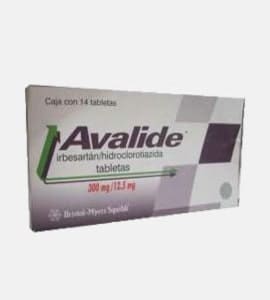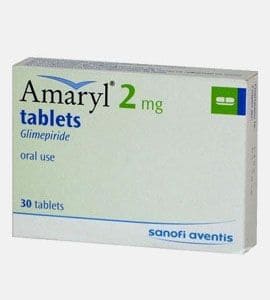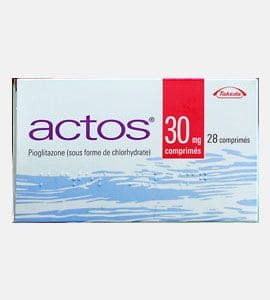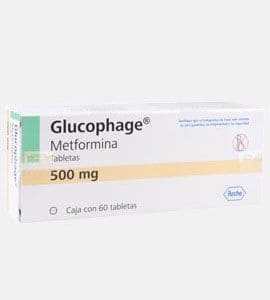Antihypertensive drug, antagonist of angiotensin receptors II. It specifically and irreversibly blocks receptors of angiotensin which leads to diminishing of biological effects of angiotensin II. Angiotensin II effects include vasoconstriction and stimulating influence on excretion of aldosterone and activation of sympathetic nervous system. As a consequence arterial pressure diminishes and the heart does not have to work as hard to pump blood. It does not influence concentration or triglycerides, content of cholesterol, glucose, uric acid in blood plasma and excretion of uric acid with urine.
Initial dose is 150 mg and it can be increased up to 300 mg on necessity. In some cases as low chloride diet, treatment with certain diuretics and others initial dose size should be smaller. Avalide is taken once a day preferably at the same time.
Contraindications
Pregnancy, infancy, hypersensitivity to Avalide.
The most common side effects include diarrhea, abdominal pain or heartburn. In case you experience allergic reaction to the medication (fever, difficult breathing, hives) contact your doctor. Avalide can cause a condition that results in the breakdown of skeletal muscle tissue and then in kidney failure. Also call your doctor if you have muscle pain, tenderness, or weakness especially if you also have vomiting, and dark colored urine, difficult urination.
Never take a double dose of this medication. If it is almost time of the next dose just skip the missed portion and continue to take the medicine according to the schedule.
Immediate medical help is needed in case of overdose which symptoms include fast or slow heartbeat, dizziness.
Tablets should be stored at room temperature, 15-30 C (59-86 F).


 العربية
العربية
 Čeština
Čeština
 Español
Español
 Français
Français
 Deutsch
Deutsch
 Italiano
Italiano
 English
English
 HUF
HUF

















